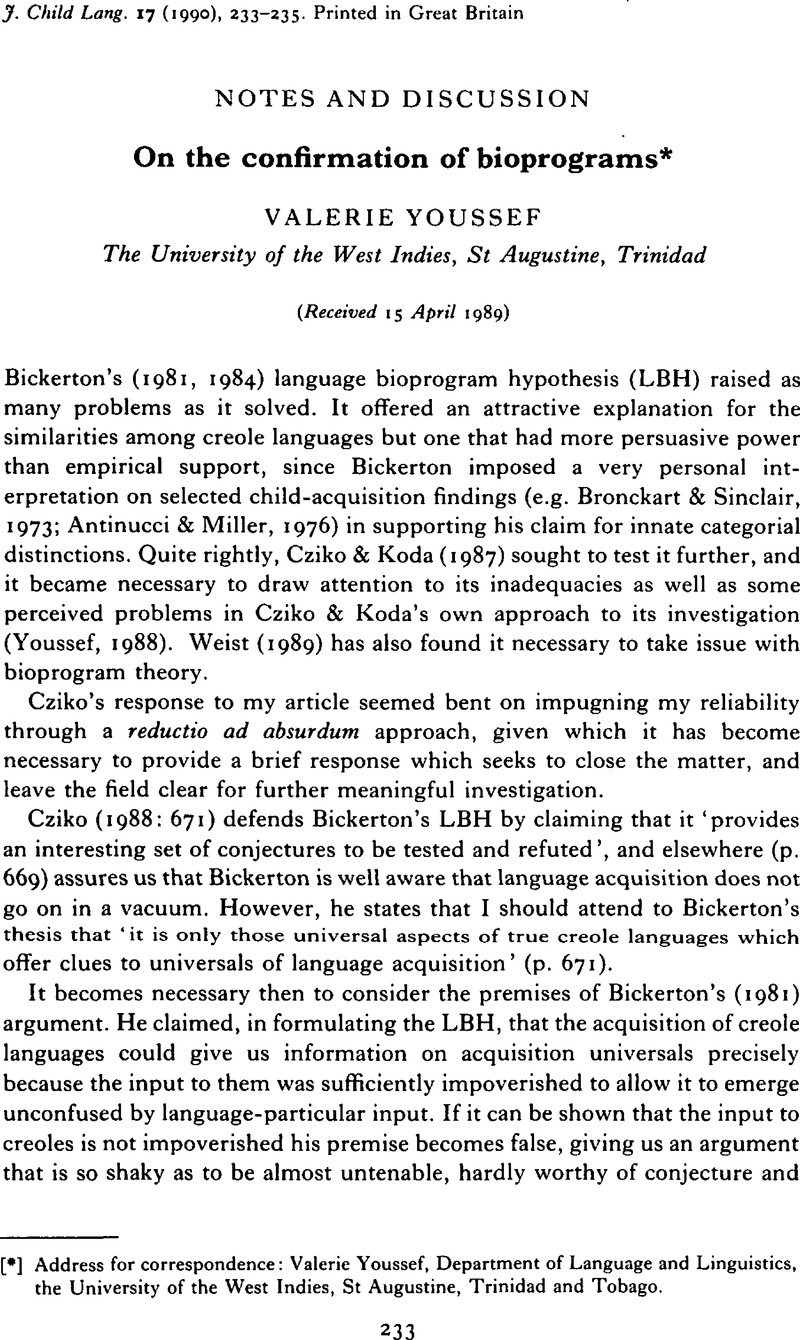Crossref Citations
This article has been cited by the following publications. This list is generated based on data provided by Crossref.
Shirai, Yasuhiro
1994.
On the overgeneralization of progressive marking on stative verbs: bioprogram or input?.
First Language,
Vol. 14,
Issue. 40,
p.
067.
Shirai, Yasuhiro
1994.
On the overgeneralization of progressive marking on stative verbs: bioprogram or input?.
First Language,
Vol. 14,
Issue. 42-43,
p.
067.
Andersen, Roger W.
and
Shirai, Yasuhiro
1996.
Handbook of Second Language Acquisition.
p.
527.
Laub, Robert W.
2021.
Romance Languages and Linguistic Theory 2017.
Vol. 355,
Issue. ,
p.
193.



